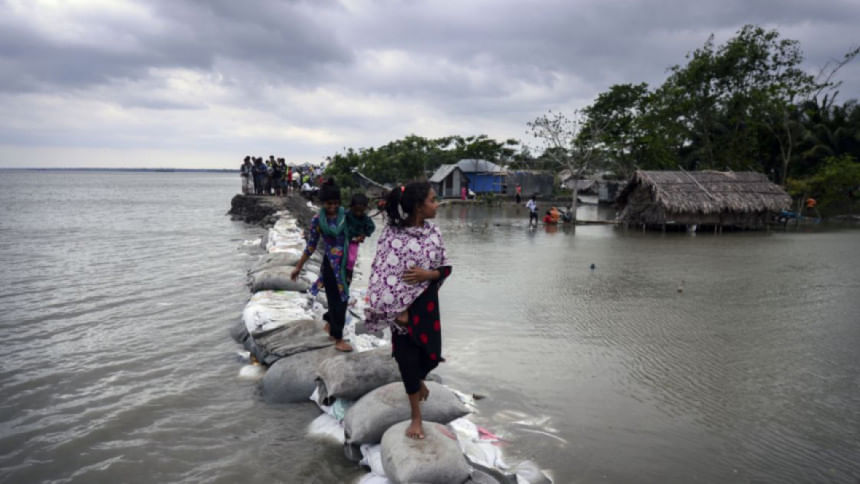More than half of households in Bangladesh's coastal belt say they are struggling to adapt to a rapidly changing climate due to the absence of proper disaster-protection infrastructure, according to a new World Bank survey.
The survey, conducted across 250 coastal villages, is part of the World Bank's new report, "From Risk to Resilience: Helping People and Firms Adapt in South Asia."
The survey was unveiled today at the Intercontinental Hotel in Dhaka.
Its findings show that 57 percent of households identify inadequate embankments, cyclone-resistant structures, and protective infrastructure as the biggest long-term barrier to building climate resilience.
Another 56 percent report that limited financial resources prevent them from adopting more effective adaptation measures, underscoring that both physical and financial constraints are leaving millions exposed.
The survey also finds high public awareness of climate risks. More than three-quarters of households and firms expect a significant weather shock within the next decade.
Already, 80 percent of households and 63 percent of firms have taken action -- but most rely only on low-cost, basic solutions due to lack of access to advanced technologies, credit, or climate-resilient public infrastructure.
The consequences are particularly severe for the poor and for agriculture-dependent families, who are losing land, crops, and income as salinity, flooding, and extreme heat intensify.
While Bangladesh's investments in cyclone shelters and embankments have historically saved thousands of lives, the report warns that fiscal constraints are limiting the government's ability to scale up infrastructure at the pace demanded by climate impacts.
"Bangladesh's resilience is being continually tested by evolving environmental challenges… more needs to be done," said Jean Pesme, World Bank division director for Bangladesh and Bhutan.
He stressed the need to expand early warning systems, social protection, climate-smart agriculture, and adaptation finance -- including innovative risk-finance tools.
The report argues that private-sector-led adaptation will be crucial, estimating that up to one-third of climate-related losses could be avoided if firms can shift resources and investments more quickly in response to climate pressures. Improving access to credit, insurance, transport networks, and digital connectivity is essential to enable that transition.

